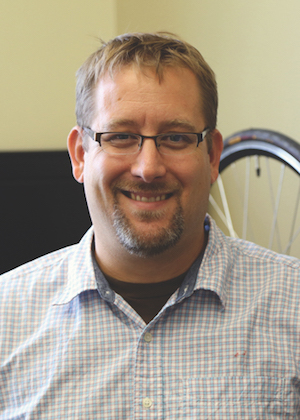The “Mythbusters” story illustrates the fact that, as consistently reported by The National Association of Colleges and Employers (NACE), employers seek college graduates who can work in teams with individuals from diverse backgrounds, solve complex problems, think critically about their work environment, and communicate verbally, as well as in writing. Graduate schools are looking for the same skills, too. In 2015, the American Association of Medical Colleges, the association behind the MCAT, added a section on the psychological and social foundations of behavior. The fact is that employers and professional schools are actively seeking skills that are at the core of a social science and liberal arts education.
 Chris BigaHere in the College of Arts and Sciences, the Department of Sociology is focused on providing our undergraduate and graduate students with the skills they need in their careers as well as in graduate and professional schools. Our department is known for teaching exciting and dynamic courses, such as Sociology of Terrorism (315), Sociology of Hip Hop (350), Popular Culture (316), and Drugs and Society (383), but we are known nationally for our teaching and research programs in Medical Sociology, the only program of its kind in the U.S.
Chris BigaHere in the College of Arts and Sciences, the Department of Sociology is focused on providing our undergraduate and graduate students with the skills they need in their careers as well as in graduate and professional schools. Our department is known for teaching exciting and dynamic courses, such as Sociology of Terrorism (315), Sociology of Hip Hop (350), Popular Culture (316), and Drugs and Society (383), but we are known nationally for our teaching and research programs in Medical Sociology, the only program of its kind in the U.S. Launched in the mid-nineties, our Medical Sociology Ph.D. program now has more than 50 alumni, many of whom have gone on great success in both the private and public/academic sector, including teaching positions at prestigious universities, publication of seminal texts in the field, and leadership positions in healthcare organizations across the country. According to the American Sociological Association, medical sociology offers “an analytic framework for understanding the social contexts of health, illness, and health care,” a critical skill, as access to and coverage of health care remain major societal issues.
Our newest opportunity is our Bachelor of Science degree in Medical Sociology, which will begin in Fall 2017. With this degree, students will be prepared for careers in medical fields, focusing on societal and community dynamics, problems, issues and challenges. They will also be well prepared for placement in prestigious and rigorous graduate programs in the fields of medical sociology, medicine, nursing, public health, and other health professional graduate/professional programs, including our own Medical Sociology Ph.D. program.
As you can see in so many of the stories in this issue, people across the College are working hard to support UAB’s mission to “discover, teach, and apply knowledge for the intellectual, cultural, and social and economic benefit of Birmingham, the state, and beyond.” In the Department of Sociology, our Medical Sociology degrees will continue to train students to apply the sociological imagination, critical thinking skills, and social science research to a rewarding careers and responsible citizenship.


